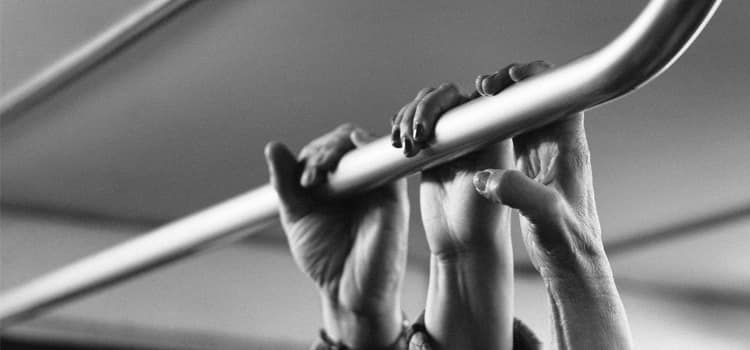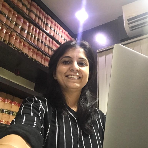EMERGING CHALLENGES RELATING TO HUMAN RIGHTS IN INDIA!!!
Posted On : October 5, 2020

Table of Contents
““All Human Beings are born free and equal in dignity and rights. They are endowed with reason and conscience and should act towards one another in a spirit of brotherhood.”
INTRODUCTION
Human Rights are the basic rights and freedom that belong to every person in the world from birth until death. They apply regardless of where you are from, what you believe or how you choose to live your life. Thus, human rights are basically relevant to all of us, not just to those who face repression or mistreatment. In India, Human Rights are commonly understood as inalienable fundamental rights to which a person is inherently entitles simply because she or he is a human being. Human Rights are thus conceived as Universal and Egalitarian which are applicable to everyone and everywhere. These rights may exist as natural rights or as legal rights.
As per Justice J. S. Verma, ‘Human rights are indivisible, inter-dependent and inter-related, and have a definite linkage with human development; both share a common vision with a common purpose. The debate on the classification of human rights based on different generation of these rights is purely academic since all of them must co-exist. Respect for human rights is the route for human development and realisation of the full potential of each individual, which in turn leads to augmentation of the human resources with progress of the nation. Empowerment of the people through human development is the aim of human rights.’
According to Section 2 (1) (d) of Protection of Human Rights Act, 1993: “Human Rights” means the rights relating to life, liberty, equality and dignity of the individual guaranteed by the Constitution or embodied in the International Covenants and enforceable by courts in India.
‘The recognition of the inherent dignity and of the equal and inalienable rights of all members of the human family is the foundation of freedom, justice and peace in the world. There are three generations of Human Rights: First Generation: Civil and Political Rights (Right to life and Political Participation), Second Generation: Economic, Social and Cultural Rights (Right to subsistence) and; Third Generation: Solidarity Rights (Right to Peace, Right to clean environment and right to development).’
HUMAN RIGHTS AS INCORPORATED IN INDIAN LAWS
Dr. B.R. Ambedkar, the crusader of human rights and chairman of drafting committee of Indian Constitution incorporated several provisions of human rights in Indian Constitution under Part III of Fundamental Rights from Article 14 to 32 and Directive Principles of State Policy from Articles 36 to 51 like Right to Equality, Right to Freedom, Right against Exploitation, Minorities Educational Cultural Rights and Right to Constitutional Remedies. Articles 14 to 18 of the Constitution guarantee the right to equality to every citizen of India. Article 14 embodies the general principles of equality before law and prohibits unreasonable discrimination between persons. It embodies the idea of equality expressed in Preamble. Article 15 relates to prohibition of discrimination on grounds of religion, race, caste, sex or place of birth. Article 16 guarantees equality of opportunity in matters of public employment. Article 17 abolishes ‘Untouchability’. Article 18 abolishes titles, Article 19 deals with freedom of speech and expression and Article 21 to Right to life and liberty. The Supreme Court of India is having the power of judicial review and can strike down any legislation and executive orders which are violative of provisions of Indian Constitution.
In case of violation of fundamental human rights, the citizens can move to Supreme Court under Article 32 and High Courts under Article 226 for restoration of rights by operating the writ jurisdiction of judiciary. The preamble of the Constitution of India encapsulates the objectives of the Constitution-makers to build a new Socio-Economic order where there will be Social, Economic and Political Justice for everyone and equality of status and opportunity for all. This basic objective of the Constitution mandates every organ of the state, the executive, the legislature and the judiciary working harmoniously to strive to realize the objectives concretized in the Fundamental Rights and Directive Principles of State Policy.
The United Nations has adopted a Charter of Human Rights and on 10th December 1948, the United Nations adopted the Universal Declaration of Human Rights for the protection of Human Rights. India was a signatory to the Universal Declaration of Human Rights, but the violations and atrocities were still prevalent. Due to wide scale violation of human rights like extra-judicial killings, custodial deaths and atrocities by the security force particularly in Kashmir, the Indian Government set up the NHRC (National Human Rights Commission) in 1993 under the Protection of Human Rights Act, 1993.
However, only framing of laws for protection of human rights is not sufficient. Law enforcement officers play a key role in society, serving and protecting the people and upholding the law. Their main aim is not only to serve but also to protect. Thus, there exists a direct relationship and inter-dependence between framing of law and its enforcement by concerned officials. It is, however, often noticed that the human rights which are protected by law are often at the risk at the hands of law enforcers. Hence, it is the duty of the central as well as state Governments to provide adequate conditions to each individual to enjoy their human rights. The Indian Constitution through its Directive Principles of State Policy as enshrined in the Part IV of the Constitution, provides guiding principles for the state to make policies regarding right to work, right to education, social security, just and humane conditions of work, for promotion of interest of weaker section, raise the standard of nutrition and standard of living and to improve public health, protection and improvement of environment and ecology etc. so that each individual can enjoy rights to the fullest.
HUMAN RIGHTS - EMERGING CHALLENGES IN INDIA AND LAW ENFORCEMENT
It is constitutional mandate of judiciary to protect human rights of the citizens. Machinery for redress is provided under Articles 32 and 226 of the constitution. An aggrieved person can directly approach the Supreme Court or High Court of the concerned state for the protection of his/her fundamental rights, redress of grievances and enjoyment of fundamental rights. In such cases, Court are empowered to issue appropriate order, directions and writs in the nature of Habeas Corpus, Mandamus, Prohibition, Quo-Warranto and Certiorari. Thus, Judiciary not only protects the rights enumerated in Constitution but also has recognized certain un- enumerated rights by interpreting the fundamental rights and widened their scope. As a result, people not only enjoy enumerated rights but also un-enumerated rights as well. Few of these are mentioned here-in-below:
1. Right to live with dignity:
Supreme Court in Maneka Gandhi v/s Union of India, interpreted the right to life and to widen its scope and deduced un-enumerated right such as “right to live with human dignity”. Thereafter, in many cases, court held that right to life includes right to live with human dignity. Therefore, through the judicial interpretations, various rights have been recognized though they are not specifically provided in Part III of the Constitution.
2. Right to approach court:
The rule of locus standi, i.e. right to move to the court, whereby only aggrieved person can approach the court for redress of his grievances has been relaxed by the judiciary. Now, court through public interest litigation, permits public spirited persons to file a writ petition for the enforcement of rights of any other person or a class, if they are unable to invoke the jurisdiction of the Court due to poverty or any social and economic disability. In S.P.Gupta v. Union of India and others, Supreme Court held that any member of the public can approach the court for enforcing the Constitutional or legal rights of those, who cannot go to the court because of poverty or any other disabilities. Therefore, public interest litigation has become the tool for the protection of human rights of the people in India.
3. Human Rights of oppressed sections of society:
The oppressed sections of the society are more prone to the violation of human rights. Most vulnerable sections of society are children, women and socially and educationally weaker sections of society. Children are more prone to exploitation and abuse. Hence, United Nations Convention on the Rights of the Child was adopted in 1989. Supreme Court in various cases asked governments to set-up advisory committee to make suggestions for eradication of child prostitution and to evolve schemes to ensure proper care and protection to the victim girls and children so also showed its concern about rehabilitation of minors involved in prostitution and held that juvenile homes should be used for rehabilitation of them and other neglected children. Concern of the Supreme Court about the protection of rights of children does not ended here it reiterated the importance of compulsory primary education vis-a-vis eradication of child labor in the case of Bandhua Mukti Morcha v. Union of India.
4. Human rights of women:
Women are considered weak in our society and are often denied basic human rights. They are subjected to violence in society whether it is within four walls of the house or at workplace. Despite the provision of right to equality enshrined under Article 14 of the Constitution, they are subjected to discrimination. Discrimination against women laborer in terms of wage payments is a very common phenomenon in India. Wages earned by women are generally lesser than their male counterparts. Despite the guarantees of equal rights to women, still they are not equally treated with men.
Supreme Court has played remarkable role in protection of their rights such as in case of Associate Banks officers Association v. State Bank of India, Supreme Court protected the rights of women workers and held that women workers are in no way inferior to their male counterparts and hence there should be no discrimination on the ground of sex against women. Supreme Court laid down guidelines for protection of women against sexual harassment at work place in case of Vishakha v. State of Rajasthan and reiterated the same in Medha Kotwal Lele v. Union of India.
5. Rights of prisoners:
Judicial system protects the rights of its citizens including prisoners. The Supreme Court by interpreting Article 21 of the Constitution protected and preserved the rights of the prisoners. In case of Prem Shankar v. Delhi Administration; Supreme Court held that practice of using handcuff and fetters on prisoners violates the guarantee of human dignity. A landmark judgment in D.K. Basu v. State of West Bengal, protected the rights of the prisoners and laid down various guidelines for arrest and detention to prevent the custodial violence and observed that right to life include right to live with human dignity.
Thus, Courts have protected right of the people in numerous cases whether it is a right against violence in custody, to live in a pollution free environment, right to health, right to adequate wages of the workers, safety of the women at workplace, compensation to rape victim and rights of the child laborers and so on. Besides the government, there are non-government entities which play an important role in protection of human rights. These organizations pickups the government’s deficits in service and help in protecting rights of the people. NGO is an independent organization of state and managed by group of private individuals and they draw strength from the people who offer voluntary support to their causes. NGOs have key role to play in planning, monitoring and evaluation of the process of the protection of human rights. There are several instances where NGOs like Saheli for women’s rights, Youth of Voluntary Action for eradication of child labour, Bandhua Mukti Morcha for eradicating bonded labour, People’s Union for Civil Liberties and for democratic rights of citizens were the first to report the violation of human rights to the concerned authorities.
The Constitution of India provides safeguards for the protection of human rights, however, for the effective implementation of the human rights Government of India has also enacted the ‘Protection of Human Rights Act, 1993’, which provides for the establishment of the National Human Rights Commission, State Human Rights Commission in various states and also the Human Rights Courts at the district level and Indian judiciary is also working to protect the human rights of the people of India as well as to provide speedy remedy to the victim of human rights violation. Despite such efforts by the Government, objectives have not yet been achieved due to the following reasons and challenges: -
- Though Constitution of India has enumerated various rights but there are large number of people who are not even aware of these rights guaranteed by the Constitution due to their vulnerable conditions and struggle of every day survival. These are the people who are mostly victims of human rights violation but they cannot think to approach court as they are more worried about their daily wages instead of protecting their basic human rights.
- Millions of people in this country still live in a state of abject poverty, without food, shelter, employment, healthcare and education. Corruption, denial of gender equality and exploitation of women, terrorism are some of the other issues which are seriously impacting human life. Thus, Globalization of human rights by making it universally accepted and eradicating global inequities is the clarion call of the current human rights movement. Achieving this end must be the agenda of the human rights movement in the new millennium.
- All human rights for all should be the goal of the century and it must be ensured that human rights are universally accepted and respected. The aim has to be to secure the freedom, well-being and dignity of all people everywhere. The seven essential freedoms are:
- Freedom from discrimination – by gender, race, ethnicity, national origin or religion.
- Freedom from want – to enjoy a decent standard of living.
- Freedom to develop and realize one’s human potential.
- Freedom from fear – of threats to personal security, from torture, arbitrary arrest and other violent acts.
- Freedom from injustice and violations of the rule of law.
- Freedom of thought and speech and to participate in decision-making and form associations.
- Freedom of decent work – without exploitation.
- Right to corruption free governance is also a human right. Non-discrimination or the right to equality is undoubtedly an essential human right. Corruption in the institutions of governance derogates human dignity of the people and also adversely affects them in many ways violating their human rights. The effect is greater in developing countries where the development programs and the right to development of every individual get impaired by prevalent corruption resulting in denial to the people of their legitimate rights.
- Health for all must be an important item in the human rights agenda. The Constitution of India guarantees that right. The Vishakha Judgement enables reading the provisions of the international covenants into the fundamental rights guaranteed in the Constitution to enlarge its meaning and scope. It can no longer be doubted that this is a basic human right which needs to be adequately and urgently addressed and protected. The goal of linking health and human rights is to contribute to advancing human well-being beyond what could be achieved through an isolated health or human rights based approach.
CONCLUSION:
Thus, one key challenge to human rights in the new millennium is to ensure distributive justice in the national as well as the global context. If human rights theory has an urgent job to do in present, it is to turn the tension from its present destructive motion towards a creative balance between the individual whom democracy offers to empower and the sources of power, both within and outside the apparatus of state. This is why the human rights movement in the new millennium needs to address the imbalances and appropriations of poor, which threaten the values – possibly even the meaning of democracy; and it is equally why a judiciary charged with upholding the rule of law in a democracy has in making its adjudication to address the same questions. In India, the judiciary has shown a fair degree of sensitivity to these questions. Through various techniques like Public Interest Litigation, giving expansive interpretation to right to life and liberty, protecting minority rights, promoting gender justice, creating new kind of compensatory jurisprudence, holding executive responsible for avoiding public duty and requiring transparency and probity in conduct of public affairs, the judiciary in India has attempted to strike the balance. The task remains incomplete and sporadic aberrations need to be firmly curbed. Commitment of the institutions of governance to the democratic principles is the real safeguard against the apprehended dangers. The need is to strengthen these institutions for vigilant monitoring.
The new millennium is going to be led by science and technology revolution. We have already witnessed the emergence of gene-technology, biologically manipulated products and many other such wonders. The real challenge is to ensure that through modern development in science and technology, it does not acquire arrogance and be the carrier of new kinds of human exploitation and miseries. It is needed to ensure that new science and technology become responsive and get dedicated to the cause of humanity and human development becoming an effective tool to spread humanism.
























